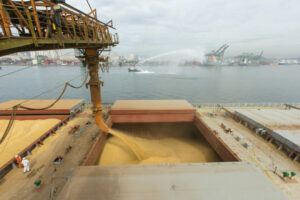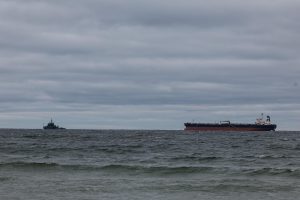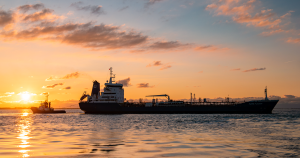Interpipe spoke about its own approach to insuring military risks at sea

Interpipe notes that the company “relies only on its own resources to cover the cost of insurance against war risks at sea.”
This was stated by the company’s director of procurement and logistics, Oleksiy Yanovskyi, in a material by RBC-Ukraine. Yanovskyi answered a question about insurance against risks at sea, in particular, the special insurance mechanism “Unity”.
“Unfortunately, we do not feel the effects of the above initiatives and mechanisms. Today we can only count on our own resources to cover the cost of insurance against war risks,” Yanovskyi noted.
He added that ordinary insurance costs 0.06% of the invoice value of the cargo, while insurance against war risks is 20 times more expensive and amounts to 1.25%, it is valid on the route from the ports of Odessa to the Romanian city of Sulina.
“The cost of war insurance has not changed significantly since the launch of the sea corridor and remains too high. In my opinion, it will not change until any legally significant ceasefire is established. The fact that at some point in time the shelling is less systematic and destructive in no way guarantees that a strike will not be delivered at any convenient moment for the aggressor. That is, the risks do not disappear, therefore the high cost of insurance remains,” Yanovskyi noted.
The company also raised the issue of the need to receive compensation from the state in case of damage to merchant ships as a result of Russia’s actions. According to Yanovskyi, due to the low number of such cases, the burden on the state budget will be insignificant.
“But the very fact of such political will creates the prerequisites for greater confidence among shipowners, which will increase the number of people willing to work in Ukrainian ports. As a result, we should also expect a decrease in insurance rates. Of course, a simple, clear and transparent compensation mechanism should be developed and implemented, and a large-scale strategic communication campaign should be conducted,” the company representative concluded. Earlier it became known that for the first time in its history, Interpipe began operating a vessel it took on a “time charter”.





